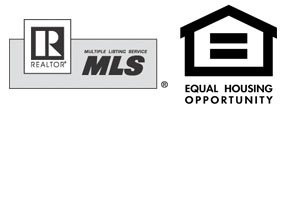First Time Homebuyer Tax Credit - a $7,500 tax credit that would be would be available for any qualified purchase between
Additional Property Tax Deduction - provides a one-year benefit that will be available to all homeowners. Under current law, property taxes are deductible only if an individual itemizes his/her deductions on Schedule A of their tax return. The new provision will permit a deduction of up to $500 ($1,000 on a joint return) for all individuals who utilize the standard deduction and do not itemize. Instructions will be provided on the 2008 tax return when it is distributed at year-end.
FHA foreclosure rescue - development of a refinance program for homebuyers with problematic subprime loans. Lenders would write down qualified mortgages to 90% of the current appraised value and qualified borrowers would get a new FHA 30-year fixed mortgage at 90% of appraised value. Borrowers would have to share 50% of all future appreciation with FHA. The loan limit for this program is $550,440 nationwide. Program is effective on
FHA Reform - including permanent FHA loan limits at the greater of $271,050 or 115% of local area median home price, capped at $625,500; streamlined processing for FHA condos; reforms to the HECM program, and reforms to the FHA manufactured housing program. The downpayment requirement on FHA loans will go up to 3.5% (from 3%). The effective date for reforms is immediate upon enactment, but the loan limits will not go into effect until the expiration of the Economic Stimulus limits (
GSE Stabilization - includes language proposed by the Treasury Department to authorize the Treasury to make loans to and buy stock from the GSEs to make sure that Freddie Mac and Fannie Mae could not fail.
GSE Reform - including a strong independent regulator, and permanent conforming loan limits up to the greater of $417,000 or 115% local area median home price, capped at $625,500. The effective date for reforms is immediate upon enactment, but the loan limits will not go into effect until the expiration of the Economic Stimulus limits (
Seller-funded downpayment assistance programs - codifies existing FHA proposal to prohibit the use of downpayment assistance programs funded by those who have a financial interest in the sale; does not prohibit other assistance programs provided by nonprofits funded by other sources, churches, employers, or family members. This prohibition does not go into effect until
National Affordable Housing Trust Fund - Develops a Trust Fund funded by a percentage of profits from the GSEs. In its first years, the Trust Fund would cover costs of any defaulted loans in FHA foreclosure program. In out years, the Trust Fund would be used for the development of affordable housing.
Modification of $250,000/$500,000 Exclusion - The sole real-estated related "pay-for" among the tax incentives modifies the $250,000/$500,000 exclusion of gain on the sale of a principal residence. Beginning in 2009, the exclusion, as it applies to a second home (or rental property) that is converted to a principal residence will be allocated. When the second home is sold, any gain attributable to use as a second home (or rental property) will be taxed at capital gains rates. Any gain attributable to use as a principal residence will remain excludable, up to the $250,000 and $500,000 limits. A formula is provided for computing the proper treatment of these gains.
















No comments:
Post a Comment